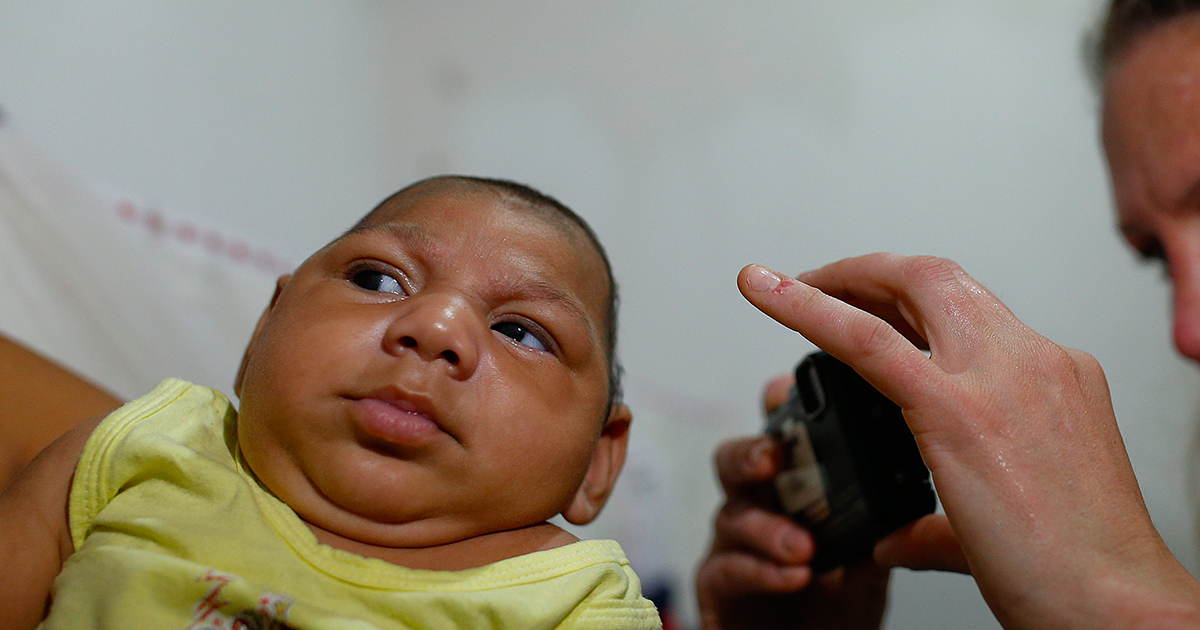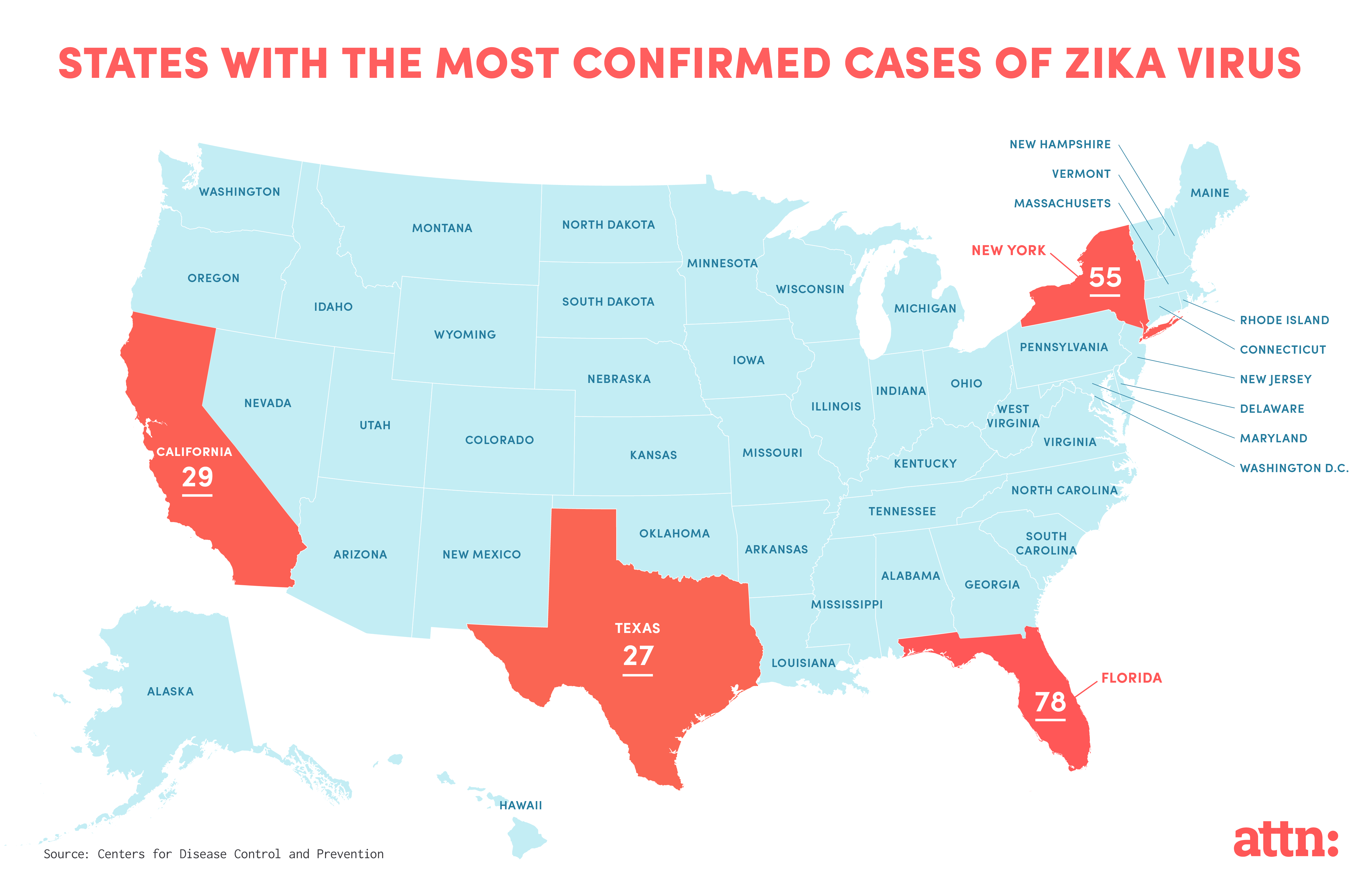Here Are the U.S. Locations with the Most Zika Virus Cases

By:
Doctors from the Centers for Disease Control and Prevention announced yesterday that the Zika virus outbreak is "scarier than we thought."
That proclamation came from the CDC's Dr. Anne Schuchat during a briefing at the White House on Monday. "Everything we look at with this virus seems to be a bit scarier than we initially thought," she said. "And so while we absolutely hope we don't see wide-spread local transmission in the continental U.S., we need the states to be ready for that."
Currently, four states are leading the nation in confirmed Zika cases: Florida at 78, New York at 55, California at 29, and Texas at 27.
As ATTN: reported in January, both the World Health Organization and the U.S. Centers for Disease Control has warned pregnant women to avoid the 22 countries experiencing Zika outbreaks. They've also warned women to avoid having sex with men who have been to the affected areas, given that the virus is linked to miscarriages and microcephaly, a condition that stunts brain growth in infants. As of now, The CDC reports that none of the reported Zika virus cases stemmed from mosquitos within the United States; there are also no known cases of microcepaly triggered by Zika in the United States, either.  AP Photo/Andre Penner - apimages.com
AP Photo/Andre Penner - apimages.com
Brazilian Studies Raise New Concerns
Brazilian health officials released two reports this week showing that the virus is more aggressive than previously thought, NBC News reports. According to a study conducted by Patricia Garcez of the Federal University of Rio de Janeiro, Zika targets the developing brain cells of fetuses and and can cause lasting brain and nervous system damage for survivors.
Another study, conducted at the Restoration Hospital in Recife, Brazil, found that Zika virus attacked the nervous systems of at least six patients. Two patients developed acute disseminated encephalomyelitis, a temporary condition that can cause inflammation in the brain and spinal chord, and can require up to ten months of recovery. Four other patients reportedly developed Gillian-Barre syndrome, a condition that can lead to muscle weakness and paralysis.
"This doesn't mean that all people infected with Zika will experience these brain problems. Of those who have nervous system problems, most do not have brain symptoms," said Ferreira, according to NBC News. "However, our study may shed light on possible lingering effects the virus may be associated with in the brain."

 ATTN.com
ATTN.com